
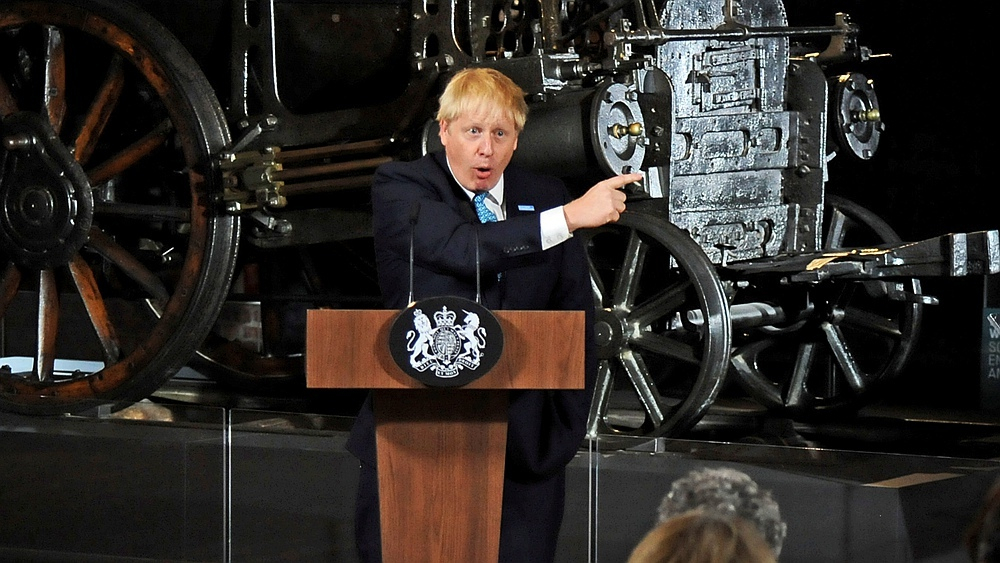
British Prime Minister Boris Johnson cautioned the European Union on Saturday that the Irish backstop, which he said was undemocratic, needed to be ditched if they were to strike a Brexit divorce deal.
Johnson, since taking office on Wednesday, has repeatedly warned that if the EU continues to refuse to renegotiate the Withdrawal Agreement agreed by his predecessor, Theresa May, then he will take Britain out on October 31 without a deal.
His biggest demand is that the most hotly contested element of the Brexit divorce agreement – the Irish border backstop – be struck out of the agreement, a demand that has angered Ireland and perturbed other EU capitals.
"If we get rid of the backstop, whole and entire, then we are making a lot of progress," Johnson said in a speech in Manchester, when asked if it was only the Irish border backstop that he wanted changed.
Read more:
Brexit deadlock: What happens next?
Boris Johnson promises UK will leave EU on October 31, fills cabinet with Brexit loyalists
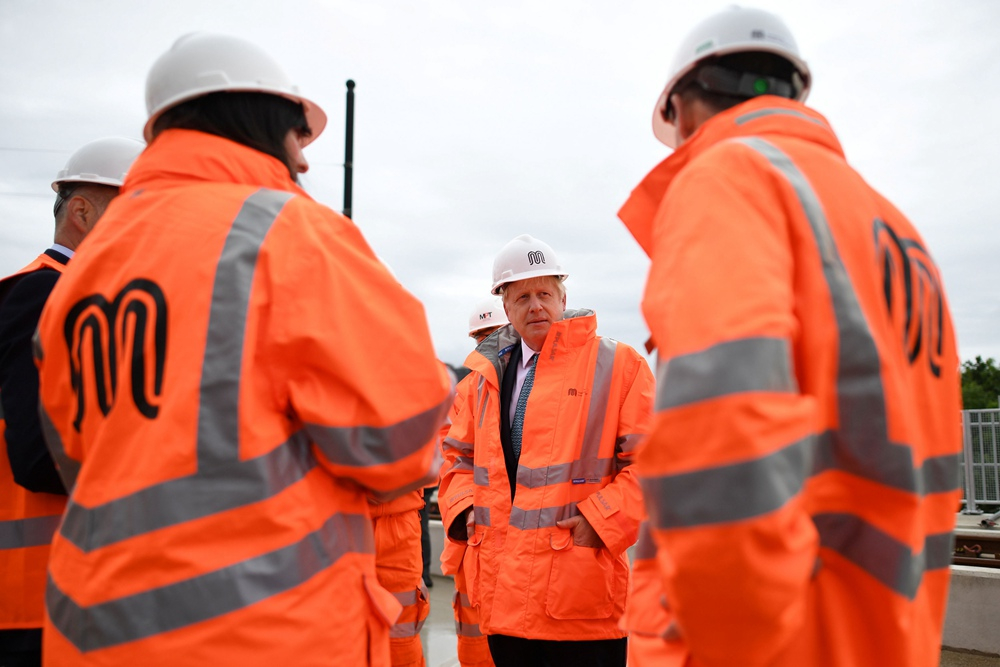
British Prime Minister Boris Johnson meets engineering graduates on the site of an under-construction tramline in Stretford, near Manchester, UK, July 27, 2019. /Reuters Photo
European leaders are prepared to talk with Britain's new leader over Brexit but have so far insisted they will not reopen the Withdrawal Agreement. Many EU diplomats think the United Kingdom will hold a snap election soon.
Johnson said he did not want a no-deal Brexit, which investors fear will send shock waves through global markets and hurt the world's economy, but that the United Kingdom had to prepare for a no-deal.
Ireland is crucial to any Brexit solution, or any Brexit meltdown.
The island of Ireland is divided into two parts. The 26-county Irish Free State (which renamed itself Ireland in 1937, and declared itself a republic in 1949) gained independence from the United Kingdom in 1922, but six northeastern counties of the island, known as Northern Ireland, have remained part of the UK.
The backstop is an insurance policy designed to prevent the return of border controls along the 500 km land border between Ireland and Northern Ireland that were ended by the 1998 Good Friday peace agreement.
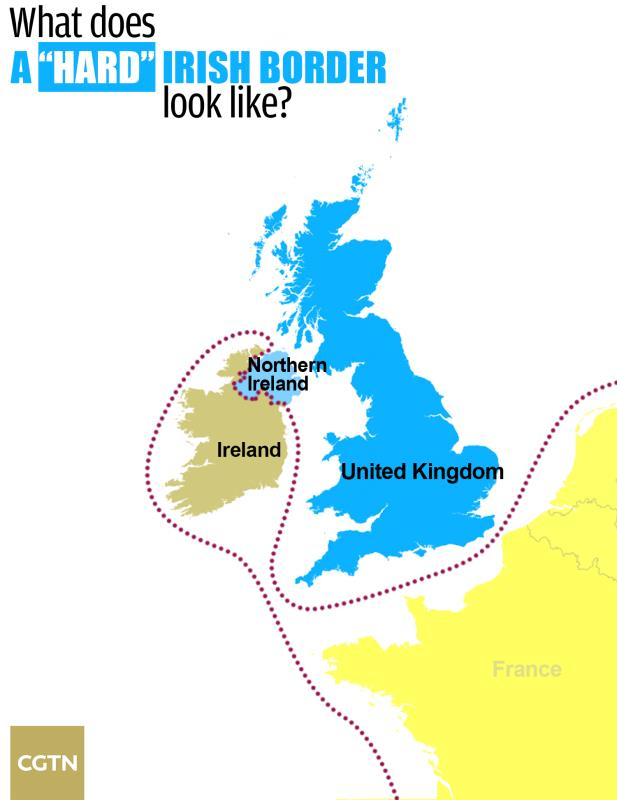
No-deal Brexit could lead to united Ireland?
Irish Prime Minister Leo Varadkar said the question of the unification of Ireland and Northern Ireland will inevitably arise if Britain leaves the EU without a divorce deal on October 31.
"People who you might describe as moderate nationalists or moderate Catholics who were more or less happy with the status quo will look more towards a united Ireland," Varadkar said Friday at a summer school in county Donegal.
He insisted there could be no Brexit deal without the Irish backstop.
Read more:
UK lawmakers back bid to make a no-deal Brexit more difficult
What is the Irish backstop?
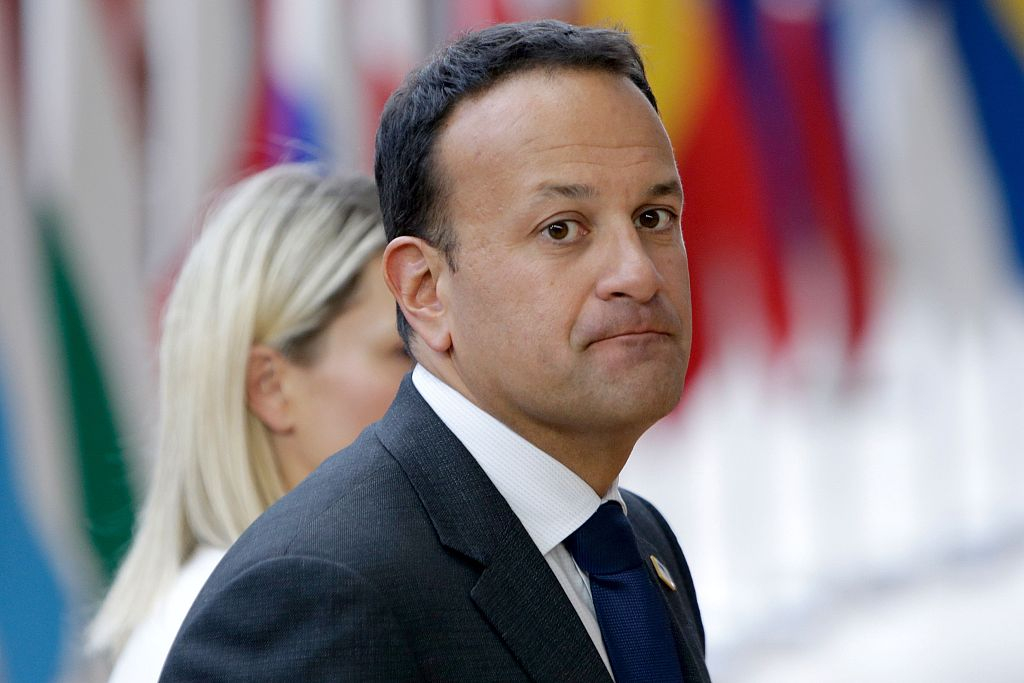
Ireland's Prime Minister Leo Varadkar arrives for an EU summit in Brussels, Belgium, June 20, 2019. /VCG Photo
However, Johnson stressed that dropping the Irish backstop is a precondition for avoiding no-deal Brexit.
"The approach of the UK government is not going to be disengaged or aloof or waiting for them to come to us: We are going to try to solve this problem and we are going to do it in a spirit of friendship and cooperation," he said.
"But we can't do it as long as that anti-democratic backstop, that backstop that seeks to divide our country, divide the UK, remains in place," he said. "We need to get it out and then we can make progress, I think."
The Withdrawal Agreement that May struck in November with the EU says the United Kingdom will remain in a customs union "unless and until" alternative arrangements are found to avoid a hard border.
Many British lawmakers oppose the prospect of being bound to EU rules and customs duties that would prevent Britain doing its own trade deals and leave it overseen by EU judges.
'Massive economic opportunity'
Speaking before a Stephenson's Rocket, a 19th century steam locomotive, Johnson dedicated most of his speech to improving public services, transport and the internet and driving up economic growth.
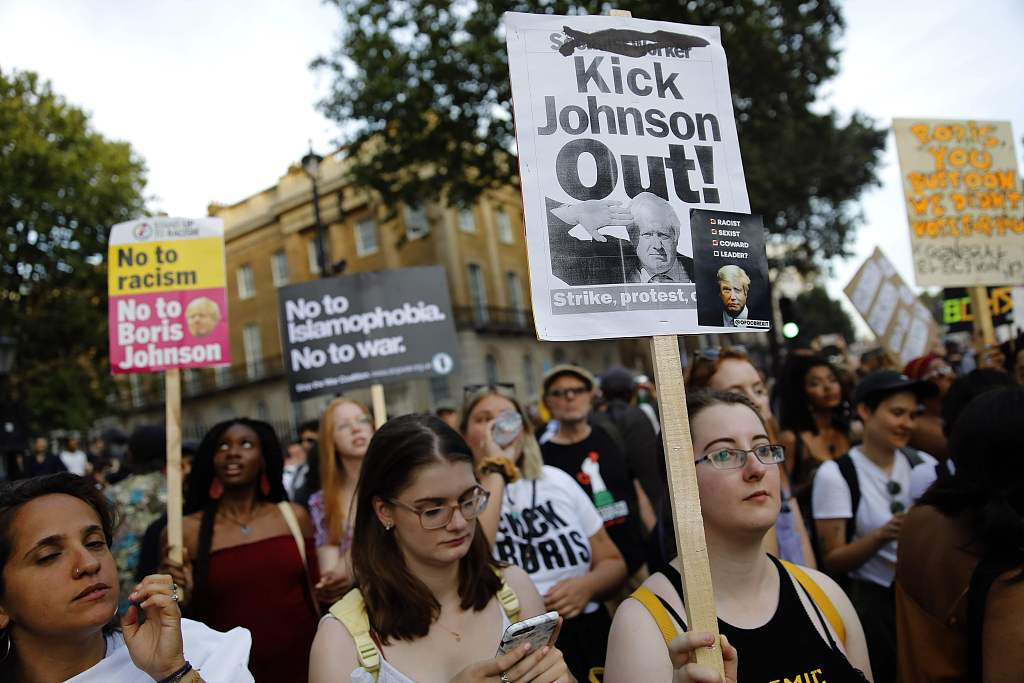
Demonstrators protest against Britain's new Prime Minister Boris Johnson outside Downing Street in London, UK, July 24, 2019. /VCG Photo
He said Brexit was a "massive economic opportunity" but had been treated under May as "an impending adverse weather event."
"When people voted to leave the European Union, they were not just voting against Brussels, they were voting against London too," he said, promising to give more powers to local communities.
"Taking back control doesn't just apply to Westminster regaining sovereignty from the EU, it means our cities and counties and towns becoming more self-governing," he said.
"Leaving the EU is a massive economic opportunity to do things we've not been allowed to do for decades," he added.
Johnson also promised to step up negotiations on post-Brexit trade deals and set up free ports to boost the economy.
(With inputs from Reuters, AFP)
(Cover: British Prime Minister Boris Johnson points during a speech at the Science and Industry Museum in Manchester, UK, July 27, 2019. /Reuters Photo)

Copyright © 2018 CGTN. Beijing ICP prepared NO.16065310-3
Copyright © 2018 CGTN. Beijing ICP prepared NO.16065310-3